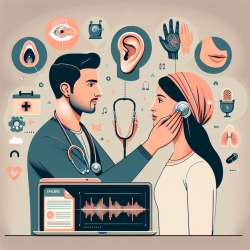Introduction
The recent study titled "Associations between sedentary behavior and negative emotions in adolescents during home confinement: Mediating role of social support and sleep quality" sheds light on the intricate relationship between sedentary behavior and negative emotions in adolescents, particularly during home confinement. This research, published in the International Journal of Clinical and Health Psychology, provides valuable insights for practitioners aiming to enhance their therapeutic approaches.
Key Findings
The study involved 1,065 middle and high school students in Shenzhen during the COVID-19 pandemic. The findings reveal a significant association between sedentary behavior and negative emotions, such as anxiety and depression. Notably, social support and sleep quality were identified as partial mediators in this relationship. This suggests that interventions targeting these mediators could be effective in mitigating negative emotions in adolescents.
Implications for Practitioners
Practitioners working with adolescents can leverage these findings to improve outcomes by focusing on the following strategies:
- Enhancing Social Support: Encourage adolescents to maintain social connections, even virtually, to buffer against negative emotions. Facilitate group therapy sessions or peer support groups to foster a sense of community.
- Improving Sleep Quality: Educate adolescents on the importance of sleep hygiene. Implement cognitive-behavioral strategies to address sleep disturbances, which can, in turn, reduce negative emotions.
- Reducing Sedentary Behavior: Promote physical activity as a means to counteract the effects of prolonged sitting. Incorporate movement breaks during online therapy sessions to encourage a more active lifestyle.
Encouraging Further Research
While the study provides a robust framework for understanding the mediating roles of social support and sleep quality, further research is needed to explore additional mediators and moderators in this relationship. Practitioners are encouraged to contribute to this growing body of knowledge by conducting longitudinal studies and exploring innovative intervention strategies.
Conclusion
The findings from this study offer actionable insights for practitioners seeking to improve mental health outcomes in adolescents. By addressing sedentary behavior, enhancing social support, and improving sleep quality, practitioners can effectively reduce negative emotions in this vulnerable population.
To read the original research paper, please follow this link: Associations between sedentary behavior and negative emotions in adolescents during home confinement: Mediating role of social support and sleep quality.










